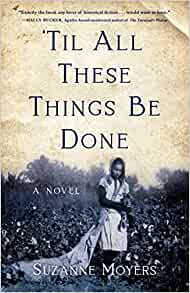Set in East Texas in the second decade of the 1900s, this novel depicts the events of the era (racial discrimination, discrimination against Catholics and foreigners, the 1918 and 1919 flu pandemics, poverty, the Ku Klux Klan, white supremacy, and social upheaval) as they touch the life of teenager Leola Rideout.
Born into poverty, which worsened when her father lost his right arm in an industrial accident, Leola starts work early as a cotton picker. Having picked cotton for an uncle back in the 1960s, I can attest to the misery of that job. In her free time, Leola studies, hoping to go to college and become a science teacher. Her dreams are interrupted when her father leaves for Houston to find a clerical job and her mother dies of influenza. Leola works to keep her two sisters with her, but her grandfather sends them off to an orphanage a hundred miles from their childhood home.
The novel spans eight decades and begins and ends with Leola having visions of her father. Even as dementia robs her of many memories, she can’t let go of the loss of her father, who disappears in Houston, never to be seen again.
’Til All These Things Be Done is great women’s fiction, showing Leola’s independent streak and budding feminism. Leola’s voice is pure Texan. My grandmother was born and raised in East Texas, and she and Leola share the vocabulary of the time and place. I enjoyed reading words I haven’t heard for decades.
********************
’Til All These Things Be Done (She Writes Press, September 13, 2022) is available through:
********************
This post contains Amazon Affiliate links. As an Amazon Associate, I may earn a small amount from qualifying purchases.













